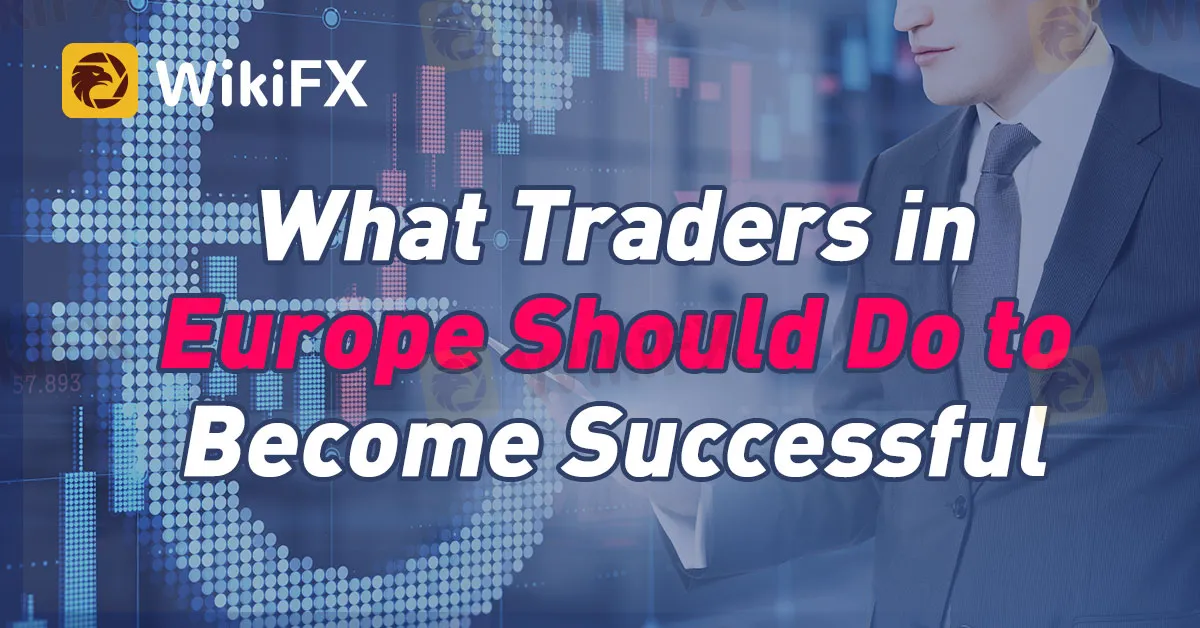简体中文
繁體中文
English
Pусский
日本語
ภาษาไทย
Tiếng Việt
Bahasa Indonesia
Español
हिन्दी
Filippiiniläinen
Français
Deutsch
Português
Türkçe
한국어
العربية
What Traders in Europe Should Do to Become Successful
Abstract:Becoming a successful trader in Europe requires a combination of knowledge, skills, and a disciplined approach. While the journey may be challenging, there are several key actions that traders can take to increase their chances of success in the financial markets.

Becoming a successful trader in Europe requires a combination of knowledge, skills, and a disciplined approach. While the journey may be challenging, there are several key actions that traders can take to increase their chances of success in the financial markets.
First and foremost, traders should focus on acquiring a solid education in trading. Understanding fundamental concepts, technical analysis, and risk management strategies is essential. By continuously learning and expanding their knowledge base, traders can enhance their decision-making abilities and adapt to changing market conditions.
Building a robust trading plan is another crucial step towards success. A well-defined plan should encompass clear goals, risk tolerance levels, and specific trading strategies. It serves as a roadmap, guiding traders through their trades and helping them stay focused on their objectives.
To thrive as a trader, it is essential to develop strong analytical skills. Traders should learn to interpret charts, identify trends, and analyze market indicators effectively. By honing their analytical abilities, traders can make informed decisions based on objective data, rather than relying on guesswork or emotions.
Risk management should be a top priority for traders in Europe. Implementing proper risk management techniques, such as setting stop-loss orders and position sizing, can protect capital and minimize losses. It is crucial to never risk more than a predetermined percentage of trading capital on any single trade.
In the competitive world of trading, it is essential to stay updated on market news and developments. Traders should follow relevant financial publications, monitor economic indicators, and stay informed about geopolitical events that can impact the markets. Being well-informed allows traders to adapt their strategies and seize opportunities as they arise.
When embarking on your trading journey, it's beneficial to leverage the resources provided by WikiFX. As a trusted platform, WikiFX offers comprehensive broker information, including regulation, customer reviews, and ratings. With WikiFX, traders can make informed decisions and find reliable brokers to support their trading endeavors. Don't miss out on the valuable insights WikiFX has to offer!

Disclaimer:
The views in this article only represent the author's personal views, and do not constitute investment advice on this platform. This platform does not guarantee the accuracy, completeness and timeliness of the information in the article, and will not be liable for any loss caused by the use of or reliance on the information in the article.
Read more

Unlocking the Power of Algo Trading: Benefits and Limitation
Algorithmic trading merges speed, data, and automation—but can it outsmart human intuition and market chaos? Explore its power and pitfalls.

Do This ONE Thing to Transform Your Trading Performance Forever
The story is all too familiar. You start trading with high hopes, make some quick profits, and feel like you've finally cracked the code. But then, just as fast as your gains came, they disappear. Your account balance dwindles, and soon you’re left wondering what went wrong. Worse still, fear and confusion creep in, making every new trade a stressful gamble rather than a calculated decision. If this cycle sounds familiar, you’re not alone.

This FREE App Is Helping Millions Avoid Financial Scams
Fraudulent brokers, Ponzi schemes, and deceptive trading platforms are on the rise, making it increasingly difficult to distinguish between legitimate and illicit financial services. Fortunately, there’s a powerful, free tool designed to help users identify and avoid scams before it’s too late—WikiFX.

Forex Explained in 60 Seconds: How It Works & Who Profits
Before diving into the forex market, it’s crucial to understand its mechanics, risks, and profit potential. Without a clear grasp of how forex operates, you risk losing money instead of making it. Here’s a concise breakdown to help you navigate this dynamic financial market.
WikiFX Broker
Latest News
Exposing the Top 5 Scam Brokers of March 2025: A Closer Look by WikiFX
Gold Prices Climb Again – Have Investors Seized the Opportunity?
Webull Launches SMSF Investment Platform with Zero Fees
Australian Regulator Warns of Money Laundering and Fraud Risks in Crypto ATMs
The Withdrawal Trap: How Scam Brokers Lure Victims into Paying More
FCA to Investors: Think Twice Before Trusting These Brokers
Trump\s tariffs: How could they affect the UK and your money
Trump gambles it all on global tariffs he\s wanted for decades
HTFX Spreads Joy During Eid Charity Event in Jakarta
How Will the Market React at a Crucial Turning Point?
Currency Calculator







